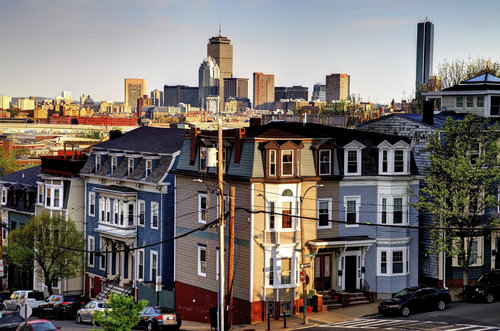
The Urban Land Institute (ULI), a nonprofit research and education organization, recently conducted a study focusing on the lack of housing for middle-class Americans, and found that both middle-income occupations and households have declined drastically in the Boston area since 1990.
The share of middle-income households in Greater Boston, the ULI found, declined from 33 percent of all working households to 26 percent, or from 333,000 households to 315,000. Driving that decline has been a hollowing of the job market from the middle: while middle-income occupations – such as maintenance, administrative, and office jobs – have declined, lower-wage occupations in sales and food preparation have risen, as have high-wage jobs in healthcare, management, and technology-related occupations.
Those trends are expected to continue, as this graph shows:
An affordable housing shortage
Boston’s growing economy will require 800,000 new workers by 2030, which will form 500,000 households, the study found. The influx of new workers will require housing, much of which could be provided by the turnover of homes owned by Baby Boomers; however, 200,000 additional units, at a variety of price points, are still needed in order to prevent housing costs from increasing. At least 21,000 new units are needed to fill the gap for new middle-income households, while the gap for low-income households is even larger at 108,000 units.
Only 22 percent of single-family homes and 39 percent of condominiums sold in the region are affordable to a family with an annual household income of $75,000; such income categorizes the family as a lower-middle-income household, according to 2014 and 2015 property sales data from the Warren Group. Thirty-six percent of middle-income households and 42 percent of lower-middle-income households are cost burdened, meaning they spend more than 30 percent of their income on housing costs, such as rent, mortgages or other home-related payments.
Middle-class households are more abundant in Boston metro area
Affordable units, for rent and for sale, are more abundant in gateway cities such as Lowell, Lynn, and Brockton. The study also found that while there may be more affordable units available outside of Boston, student loan debt and down payment requirements may present other barriers to homeownership.
While the number of middle-class households has declined in Boston by about 12 percent, there has been a slight increase in middle class households in the rest of the region, which includes parts of the Inner Ring and the Boston metro area.
